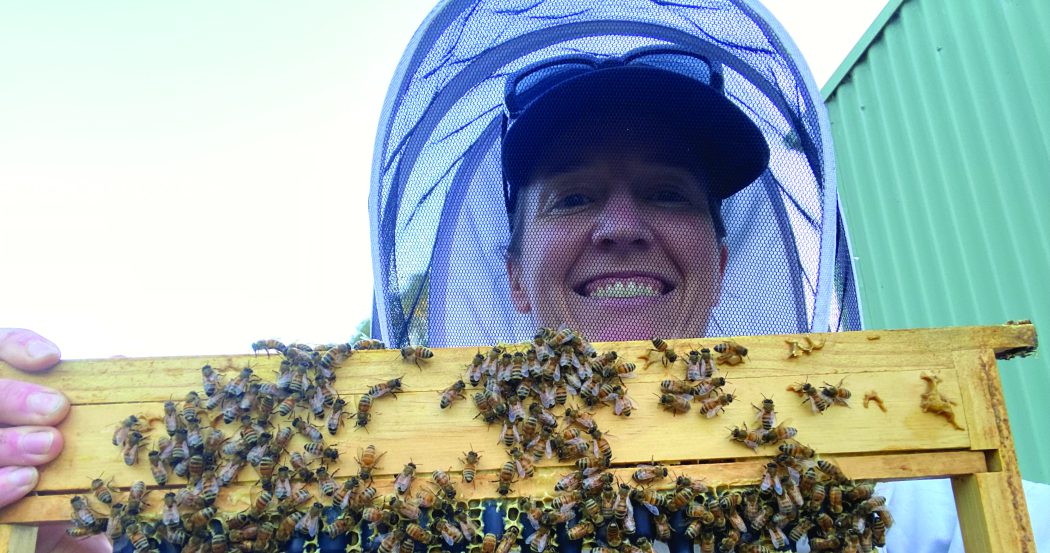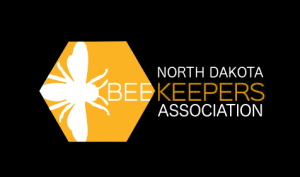An Australian MiteMare
By: Becky Masterman & Bridget Mendel
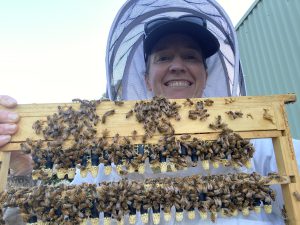 One Winter day we were, as usual, seeking ways to travel the globe, get our Bee Culture work done and also not move an inch, when we happened upon the idea of interviewing our friend and most excellent beekeeper Liz Frost who lives in Australia. Australia is no doubt warm and sunny, we thought, as is Liz, so we can travel there virtually while also lying in bed with a dreadful cold while also getting our article done—or at least researched.
One Winter day we were, as usual, seeking ways to travel the globe, get our Bee Culture work done and also not move an inch, when we happened upon the idea of interviewing our friend and most excellent beekeeper Liz Frost who lives in Australia. Australia is no doubt warm and sunny, we thought, as is Liz, so we can travel there virtually while also lying in bed with a dreadful cold while also getting our article done—or at least researched.
Only one of us was lying in bed but we like to maintain the illusion that we live like Charlie (from the Chocolate factory)’s grandparents, crammed head to toe in a four-poster eating soup.
Everyone has a story about their start in beekeeping and we learned that Liz’s stinks. Liz was minoring in medical and forensic entomology as a University of California, Davis undergraduate and decided that a healthy beehive smells better than a mammalian corpse. She started to work with honey bees not only to please her nose but also to make use of her naturally high pain threshold. Initially, Liz got her start volunteering for Susan Cobey and ended up working for four years at the Harry J. Laidlaw Honey Bee Research Facility. That start is one of the reasons that Liz is known for her artificial queen insemination and queen breeding skills.
Liz explained that as they say in Australia, she got a case of the heaps during her two-year employment for the Bee Informed Partnership. She learned heaps and heaps from North Dakota and Minnesota commercial beekeepers and California queen breeders. It was hearing about how much easier beekeeping was in the U.S. pre-varroa that prompted Liz’s visit to Australia on a working holiday visa.
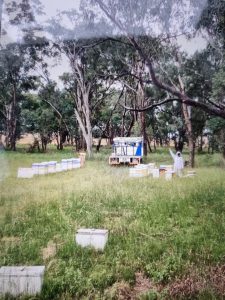
Yellow box Eucalyptus trees surrounding a breeding research apiary. Photo Credit: Sam Giggins
Liz arrived thinking that Australia would be a breeze, beekeeping wise. She met wonderful beekeepers and found that the most “switched on” (talented) beekeepers were the botanists (and she is clearly a botanist too). Botanists think about soil, rain and buds. They pay attention and predict blooms. She explained that the Eucalyptus range of species are valuable for nectar, but their pollen is deficient in some of the amino acids that honey bees need. Beekeepers follow the bud of eucalyptus species based on the bud stage, the rain in the previous 12 months, current soil moisture and the weather patterns. Beekeepers use these factors to decide whether to go to a blossoming event or not. They’ll potentially go to a prolific nectar production event, knowing that it’s protein deficient and then plan the next shift of hives to go to a recovery flora that has high protein.
The next thing Liz cleared up during our conversation was the weather in Australia. Despite looking like a small cookie floating in a bowl of milk on the map, Australia is vast, climatically, and prime beekeeping areas are often deluged by rain. What does that mean for beekeepers? You guessed it: chalkbrood and hive beetles are perpetual problems.
At this moment, however, hive beetles et al. have been dwarfed by a smaller pest and much bigger problem: the varroa mite. Yes, as you may have heard, Australia, one of the last beekeeping fantasy lands of mite free beekeeping, now officially has mites. And Liz has her hands full.
Liz now works for Australia’s Department of Primary Industries in New South Wales managing their national bee genetic improvement program and working as a technical specialist supporting the industry at large. She described the moment of defeat when, in September 2023, Australia officially stopped trying to eradicate mites and transitioned to “managing mites.” Oh, that familiar and tedious phrase!
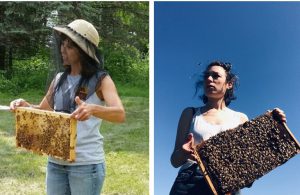
Becky Masterman earned a PhD in entomology studying honey bee hygienic behavior at the University of Minnesota and is currently a host for the Beekeeping Today Podcast. Bridget Mendel joined the Bee Squad in 2013 and led the program from 2020 to 2023. Bridget holds a B.A. from Northwestern University and an M.F.A. from the University of Minnesota. Photos of Becky (left) and Bridget (right) looking for their respective hives. If you would like to contact the authors with your own beekeeping mitemares or other thoughts, please send an email to mindingyourbeesandcues@gmail.com
It was devastating to hear Liz’s experience of having to euthanize her colonies during the nationwide effort to stop the spread. But, similar to the disaster of COVID in which as soon as one outbreak was quelled another popped up, mites quickly snuck in and infiltrated enough hives to qualify them as permanent pests. A swarm Liz caught in her backyard contained hundreds of mites in a single sample. Suffice to say, beekeeping anxiety down under is high, and Liz and others are busy providing mite management education as quickly as possible.
To cheer us up, Liz talked more about her passion for the flora of Australia, in particular the Eucalyptus species. There are nine hundred species of Eucalyptus in Australia, two hundred of which are very valuable to beekeepers. We left the call feeling optimistic about Liz’s beekeeping world despite what she called a “total mitemare.” Despite the rain and mud and mites, she is pursuing her passions for bee breeding and botany and picking up whacky Australian phrases to boot.
Resource
To learn more about how Liz feels about the future of Australian beekeeping now that varroa has landed and climate change is adding question marks to traditional beekeeping patterns, check out Becky and Bridget’s Beekeeping Today Podcast episode with Liz (Season 6, Episode 40 to be released on March 18, 2024). www.beekeepingtodaypodcast.com




